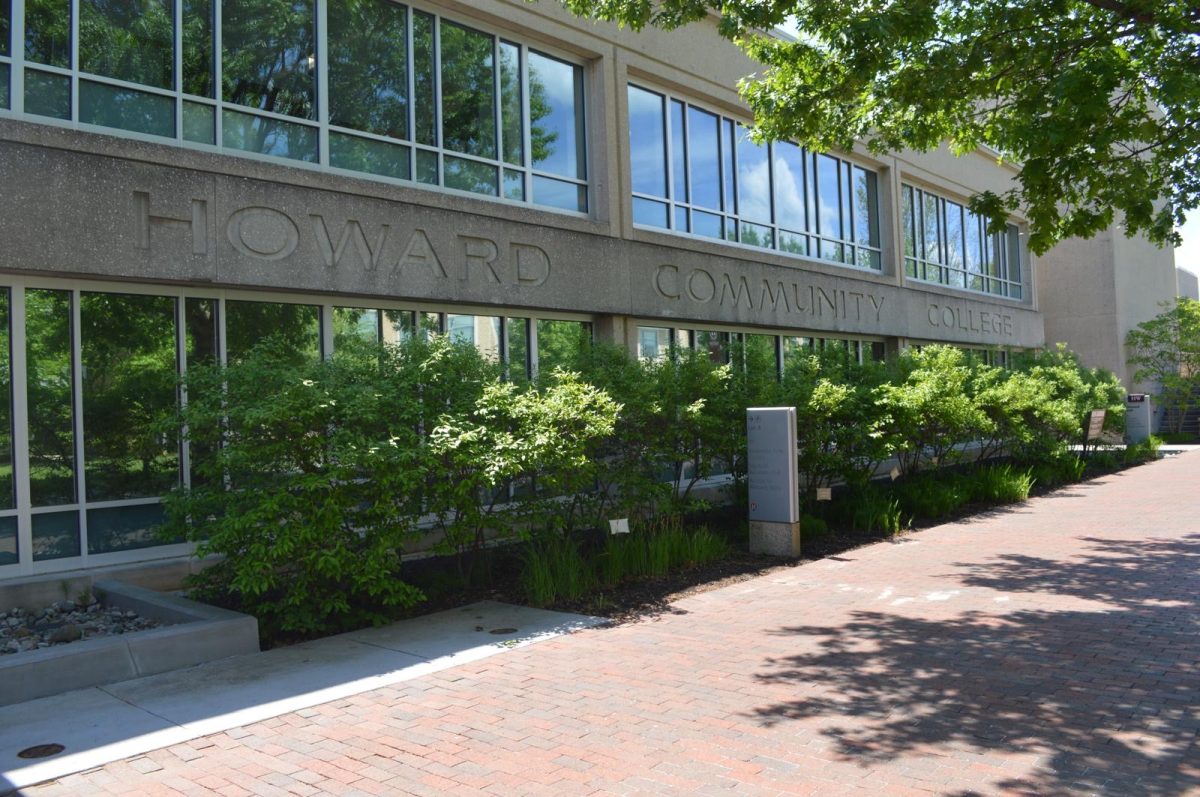Joker: Those Who Aren’t Laughing Perhaps Simply Did Not Get the Joke
October 14, 2019
Released October 4th, committed fans have likely had time to digest the film- and if said fans are anything like me they’ve chewed through the film’s dark undertones, expressive gestures, and of course the agitating violence with anyone who would lend an ear. Now it’s fun to write a review for fans, but it’s even more satisfying to write a review for skeptics, to try and shed some light on what may have been missed by so many who have not fallen madly in love with the work. This review will not contain crucial plot spoilers- but it will definitely contain overt recommendations to take the time to see the film (ideally more than once). Consider this your first not so subtle suggestion to do so. Upon the initial airing in the film festival circuit, the film garnered outstanding positive attention and gained momentum as it began to reach larger audiences. However, as time went on, audiences and critics alike would be met with a divide not unlike America’s political climate that is so keenly touched on by the work itself. It is undeniable that director Todd Phillips delivered a film that will be a point of contention for many- and the focus of debate for the foreseeable future.
Perhaps you’re not a comic book fan, perhaps you’ve heard warnings of graphic violence, or maybe you’re afraid of clowns (tough year coulrophobes, between It Chapter 2, Wrinkles the Clown, and of-course Joker). Whatever the reasoning may be for not wanting to see the film, I will again urge you to set your discomforts aside and get yourself to the theater (you can dance your way there if you really want to be in theme). It’s my personal opinion that Joker holds at its’ depths a flicker of light with the capacity to illuminate the darkest of human and societal sorrow from loneliness, mental illness, greed, isolation, corruption, and inter-generational trauma. To me, that illumination is totally worth a few squeamish moments in a dark theater.
The film offers an inside look at the origin of Batman’s most famed nemesis, even granting audiences a name unlike ever before. Joaquin Phoenix breathes life into Arthur Fleck- the troubled man who existed before the birth of Joker the legend. Living alone with his Mother in poverty, we get to experience the lows of Gotham city through Fleck’s eyes.
Working as a clown for hire by day and aspiring to successful comic by night, Fleck is repeatedly insulted, mugged, and ultimately dehumanized- a process that is important to consider in the evolution of mass shooters that have become so ubiquitous in our society. Alarmists warned even before the film was released that the depiction of violence could spark copycats taking to the world stage to reenact Fleck’s rise to the ultimate villain. While I value the sensitive nature of mass shootings and violent crime, it is my contention than censorship prohibits growth and it’s alternative- an empathetic view of whatever sensitive phenomena is at hand lends to greater cultural understanding and ushers in evolution. Yes- the film pathologizes the type of disenfranchised men who commonly engage in mass shootings- but the film is entirely fictional and placing responsibility on the work for America’s cultural shortcomings would be irresponsible.
There are moments in the film when the dehumanizing violence inflicted on Fleck is truly stomach churning, but without these scenes, to me, the film would not be able to dive as deep as it does. Despite the great focus on the parallel of white male shooters with the character, I found a parallel to another marginalized group- domestic violence victims. The relationship between Arthur and his Mother, and the discussion of Arthur’s troubled upbringing can serve as acknowledgement for so many who have experienced abuse in their lives. The intimate view of Arthur’s manic scrawling’s in personal journals, frustrating moments in therapy, and even the triumphant theft of his familial records from Arkham Mental Institution can be so highly relatable for those who have found themselves on the receiving end of domestic abuse and in pursuit of healing and truth after the fact.
Director Todd Phillips allows plenty of insight into the personal struggle of Arthur Fleck, but he also makes it clear that Gotham City as a whole is in the throes of crisis- with garbage piling up on the streets, crime rising day by day, and employment at an all-time low-the sociological implications of the making of the Joker are artfully revealed. While the film is a stand-alone feature with no connection to the current DC universe, audiences can revel in the inclusion of Thomas Wayne, a glimpse of Alfred, and even a young Bruce Wayne. The inclusion of these characters not only made the theater squeal with delight- it also stands to show the vast divide in class structure in Gotham. Wayne manor in all its glory was a stark comparison to the squalor of the Fleck home, the clown locker room, and much of the scenes throughout the city. This contrast can be likened to present day politics- no matter which side of the political divide you
are on, it is true that the Washington demographic is not representative of America as a whole and it is this truth that intensifies the stratification in approaches in government from libertarian ideology all the way to socialist ideals. (Again, I urge you to see the film and take time to reflect on your own view of the world.)
Despite the divide when it comes to reviews on the film overall, it was nearly unanimous that cinematography and performance were at an all-time high. Phillips stretches his directorial muscle in this departure from his comedic repertoire and Phoenix adds yet another glistening execution to his collection. The role demanded an impressive command of bodily movement, a terrifying and unique approach to the famed maniacal laughter, and fierce and unapologetic rage. Regardless of the backlash, the accounts of film goers walking out early, and the mounting negative reviews you can undoubtedly find with a quick google search- I urge you all to go into the film with an open mind, to let the film be an escape from the world for a few hours and to dive into the pathos of one of Americas most revered and worshiped villains.






